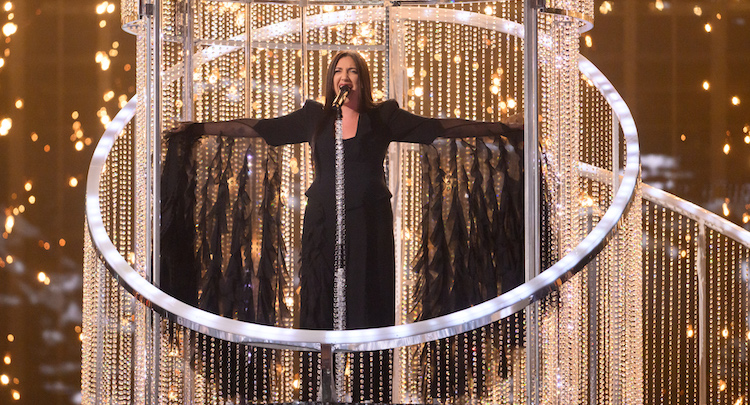It’s hard to believe we’re now on Day Three of the backlash to an Israeli singer winning the public Eurovision vote. But it is a reminder that being from Israel is considered an inherently political act in many parts of the world, including Europe.
Eurovision’s permanent slogan is “united by music.” In that spirit, the organizers have strict rules about keeping politics out of it. This year, Israeli entrant Yuval Raphael, a survivor of the Nova massacre, won the public voting in the contest’s final round. When combined with the judges’ scores, Raphael finished second overall.
This was a triumph for Raphael, who is put at certain disadvantages because she is Israeli; namely, she is subjected to threats and even the occasional activist who tries to rush the stage to pour fake blood on her. (Anti-Israel activists are a community of deeply disturbed people.) No one else is forced to compete under such threats of physical harm because no one else in the contest is from Israel.
Nevertheless, she persisted. This angered people. Israel’s ambassador to Belgium and Luxembourg posted some funny local headlines objecting to Raphael’s success. Among them: “Why did Belgium give Israel twelve points despite the war in Gaza?”
The war in Gaza was the reason that many Israel-haters called for the Jewish state’s exclusion from the contest in the first place. But the call to judge the performance itself based on the home country’s politics is a funny one. The suggestion is that Raphael’s song didn’t deserve to be rated so highly because she is Israeli. “United by music” indeed.
This isn’t a Eurovision-specific problem. Recently, two very different bands have faced show cancellations in Europe. Comparing their respective “crimes” is instructive.
First there is Kneecap, and Irish rap trio. At Coachella, Kneecap sought to maximize the goodwill of the audience with an anti-Israel backdrop. That succeeded in drawing attention to the group, at which point it was discovered that the trio has in the past encouraged its audience to “kill your local MP”—according to Kneecap, “the only good Tory is a dead Tory”—and turned one concert into an explicit rally of support for Hamas and Hezbollah.
Kneecap had a few gigs cancelled by venues after that. The band received a warm rush of support, however, from across the music world. An open letter backing Kneecap and supporting artistic freedom was signed by Paul Weller and dozens of others in the industry. Kneecap, many believed, should be forgiven their incitement to mass murder and their public support for proscribed terrorists in the name of art.
But not everyone gets that artistic license. Another band hit with cancellations was the duo of Jonny Greenwood and Dudu Tassa. Greenwood is a member of Radiohead, which refuses to boycott Israel. The band has long been subject to harassment campaigns for its willingness to play in front of Israelis.
Two of their planned shows, in Bristol and London, were cancelled after a Palestinian activist group drummed up what one venue described as “credible threats” that led the proprietors “to conclude that it’s not safe to proceed.”
Tassa was born in Israel. Greenwood is married to an Israeli. I have not seen a rousing statement on their behalf from Paul Weller.
So if you’re following along: One band had shows cancelled for threatening the lives of elected officials; the other had shows cancelled because their lives were being threatened. In both cases, the threats were coming from “pro-Palestinians.” Those responsible for the threats received widespread support from the music industry.
In Europe, it is considered politically provocative for an Israeli to have been born. It is considered slightly less politically provocative to threaten to murder that Israeli.


















